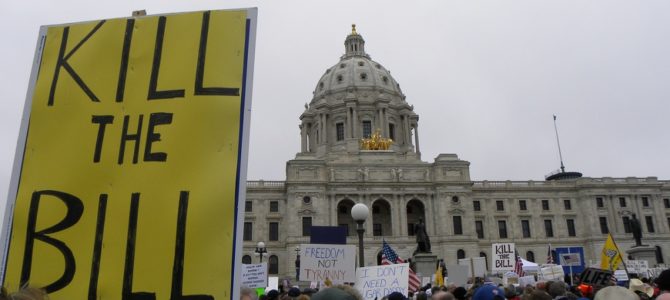A federal district court barred the government Thursday from forcing Wheaton College to pay for employees’ access to contraceptives, in violation of the school’s religious beliefs.
Judge Robert M. Dow, Jr. granted the Christian college a permanent injunction declaring that the federal government violated civil rights law by mandating contraceptive coverage that goes against the school’s Christian beliefs. This marks the first district court to order unending protection from the Affordable Care Act “contraceptive mandate” that forced Wheaton to provide services (like the week-after pill) in its health plans.
After a long, five-year battle in the courts, the decision is a triumph for Wheaton.
“The years Wheaton College spent in court have finally paid off,” said Diana Verm, Wheaton alumna and legal counsel at Becket, which represented the College. “This order means that Wheaton is protected from the mandate now and in the future, and that it can focus on providing an excellent Christian education instead of defending itself from government fines in court.”
The victory comes after a three-year stint in which the legal and regulatory landscape concerning the application of the Religious Freedom and Restoration Act (RFRA) to the mandate imposed by Health and Human Services. Consequently, what makes Thursday’s decision so significant is that it permanently protects Wheaton from any current or future version of the mandate by HHS.
However, Wheaton College’s ruling does not technically (at the moment) meet the Supreme Court’s requirements set out in Zubik v. Burwell that the school practice its religious liberty, while also helping women find an alternative means of obtaining the contraceptives the school won’t provide. At Notre Dame, for example, this was previously handled by the University not offering certain birth control it deemed an abortifacient, but allowing its health insurance plan to fill in gaps for women who made requests from covered medical providers.
As a Christian liberal arts college in Wheaton, IL, the school was founded in 1860 by Jonathan Blanchard, a prominent abolitionist. The College was created with a religious mission: For Christ and His Kingdom. This mission guides everything it does, so the school is not willing to compromise on matters that violate its Christian tenets.
Wheaton determined the week-after contraceptive pills to be an abortifacient, meaning it results in the end of a life rather than prevention of fertilization. So Wheaton informed HHS in 2012 that providing the contraceptive in accordance with the federal government mandate violated the school’s ability to exercise its religious beliefs. When HHS didn’t respond, Wheaton then sued to defend its right to operate according to its religious principles.
Given that the Supreme Court has already dealt with the contraception mandate five times — each time ruling in favor of the religious groups — it has continuously sent cases back to the lower courts, leaving opportunity for future conflict.
“The government is not above the law — that’s why we have civil rights laws. Wheaton should never have had to go to court to protect its rights in the first place,” Verm added. “This order ensures we won’t have to come back.”
While this comes as a major victory for Wheaton, it is uncertain how much of a blow this actually is to HHS. The ruling would have been a major setback to the agency’s work and purpose for the Obama administration and under the Affordable Care Act. With the election of President Trump, however, the Wheaton College perspective does not undermine the Secretary’s agenda or deviate from the administration’s shared viewpoint. In fact, the New Conscience and Religious Freedom Division within HHS has been facilitating ways for companies, universities and medical centers to opt out of providing services that violate their moral or religious beliefs. This means even paying legal fees for those on the side of religious liberty.
“We are grateful to God that the court recognized Wheaton’s religious identity and protected our ability to affirm the sanctity of human life,” said Philip Ryken, president of Wheaton College. “The government should never have tried to force us to provide drugs and services against our faith, but that episode is now behind us.”
The matter is settled for Wheaton, but more importantly, the stage has been set for health policy shifts across the U.S. as it pertains to women’s health and employer and university oversight from the federal government. If and how Wheaton will address the Supreme Court requirement to find a way to provide services or drugs for women who want them but are not offered by the school is yet to be decided. This was one small step for a religious college, but a giant leap for religious institutions separating themselves from the grip of government agencies.









